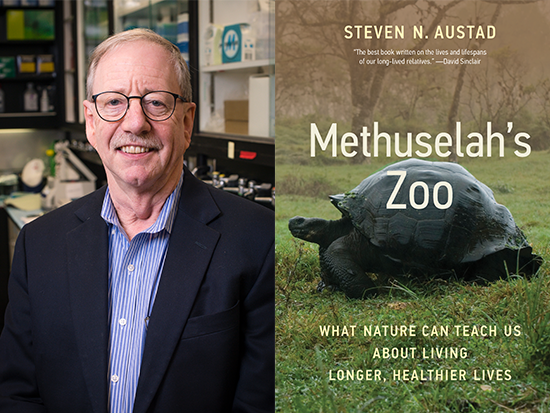Media contact: Savannah Koplon
 In his new book “Methuselah’s Zoo,” Steve Austad Ph.D., Distinguished Professor and
In his new book “Methuselah’s Zoo,” Steve Austad Ph.D., Distinguished Professor and
Protective Life Endowed Chair in Healthy Aging Research in the University of Alabama at Birmingham College of Arts and Sciences Department of Biology, poses a fundamental question: What can we learn from nature — animal species, specifically —about their longevity and sustained health? Can we apply that to human beings?
“This book proves, I hope, that nature is smarter than we are,” Austad said. “It has invented numerous animals with better resistance to the destructive process of aging than humans have. By learning how this resistance works, we can plausibly keep humans healthy decades longer.”
To prove this, the book features stories of long-lived animal species — from thousand-year-old tubeworms to 400-year-old sharks — and what they might teach about human health and longevity. The book mentions a societal dilemma that human life span has increased faster than the health span. “If that trend continues, a societal disaster awaits. Health care systems may well collapse under the weight of the frail and ill elderly unless we can find a way to treat the aging process as we treat diseases,” the book reads.
It asks fundamental questions comparing animal and human life spans, including why and how would a blind salamander no longer than the span of your hand live more than a century? Older people can lose as much as 16 percent of their lower body strength after only 10 days of bed rest. Consider bats that hibernate for as long as nine consecutive months. At the end of that time, they wake up and fly away. How do they do it?
“‘Methuselah’s Zoo,’ I believe, holds the key to prolonging human health,” Austad said. “It may seem like a radical idea but perhaps a radical idea whose time has come.”
